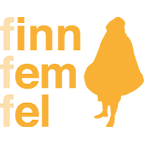The day of the living people
2004, Lifestyle workshop, Days of autumn. Soomaa (EST)
Days of autumn, Norderopäische Bauakademie
The Bauakademie Northern Europe was founded in 1992 at the Department of Architecture of the University of Wismar, in Germany, as a platform for networking and developing research and to elevate the discussion in public domain about building culture in the region of the Baltic Sea and the Nordic countries.
The Days of autumn are in different countries and cities recurring seminars, conferences and workshops for students and teachers. Professors, lecturer and artists from different disciplines are invited to take part.
The day of the living people
The Day of the Living People is an 8 min. documentary, which ironically quotes the title a famous Romero’s movie, produced by the students in the workshop Lifestyles, during which they were invited to research about everyday practises in the actual local kolkhoz. Students were asked to research about what people think the kolkhoz should become in order to satisfy their needs and to reach their priorities since they are the ones that will run this heritage to the next coming future. With the collapse of communism and the break-up of the Soviet Union in 1990-991 kolkhozy began to be privatized and since than an intense debate about the destiny that this historical heritage should take started, debate that sees positions such as demolition, abandon, or conservation – renovation of the physical and historical heritage. A critical agricultural economy and the consequent high rate of unemployment bring to the Estonian territorial policies the urgent priority of the kolkhoz destiny as strategy to maintain and develop the local agricultural environment.
The Day of the Living People documents the process of involvement of the local inhabitants in the formulation of a proposal for a new concept about the kolkhoz future. They tried to set up a simple bottom up participation model in order to understand and recognize the important elements that shape the everyday lifestyle of the local community. Students asked people to point the places they “love” and the places they “hate” and than what they think is needed in order to make the kolkhoz a better place. We named this a goodbad mapping process in which we found that places that people loved or heated were, for different or opposite reason, overlapping, showing a clear definition of a non formalized “centre” were genuine generational friction takes place.
The aims of the project we have run during the workshop, the production of the goodmap mapping process and the production of the documentary is to point a direction in which population should be involved into the upgrade process of the local environment that bridge and maintain an heritage that belongs to the European history.
Finnfemfel realized the project in co-operation with Antonio Scarponi.




